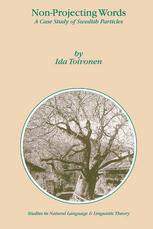

Most ebook files are in PDF format, so you can easily read them using various software such as Foxit Reader or directly on the Google Chrome browser.
Some ebook files are released by publishers in other formats such as .awz, .mobi, .epub, .fb2, etc. You may need to install specific software to read these formats on mobile/PC, such as Calibre.
Please read the tutorial at this link: https://ebookbell.com/faq
We offer FREE conversion to the popular formats you request; however, this may take some time. Therefore, right after payment, please email us, and we will try to provide the service as quickly as possible.
For some exceptional file formats or broken links (if any), please refrain from opening any disputes. Instead, email us first, and we will try to assist within a maximum of 6 hours.
EbookBell Team

0.0
0 reviewsFocusing primarily on Swedish, a Germanic language whose particles have not previously been studied extensively, Non-Projecting Words: A Case Study on Swedish Particles develops a theory of non-projecting words in which particles are morphologically independent words that do not project phrases.
Particles have long constituted a puzzle for Germanic syntax, as they exhibit properties of both morphological and syntactic constructs. Although non-projecting words have appeared in the literature before, it has gone largely unnoticed that such structures violate the basic tenets of X-bar theory. This work identifies these violations and develops a formally explicit revision of X-bar theory that can accommodate the requisite "weak" projections.
The resulting theory, stated in terms of Lexical-Functional Grammar, also yields a novel classification of clitics, and it sheds new light on a range of recent theoretical proposals, including economy, multi-word constructions, and the primitives of lexical semantics. At an abstract level, we see that the modular, parallel-projection architecture of LFG is essential to the description of a variety of otherwise recalcitrant facts about non-projecting words.